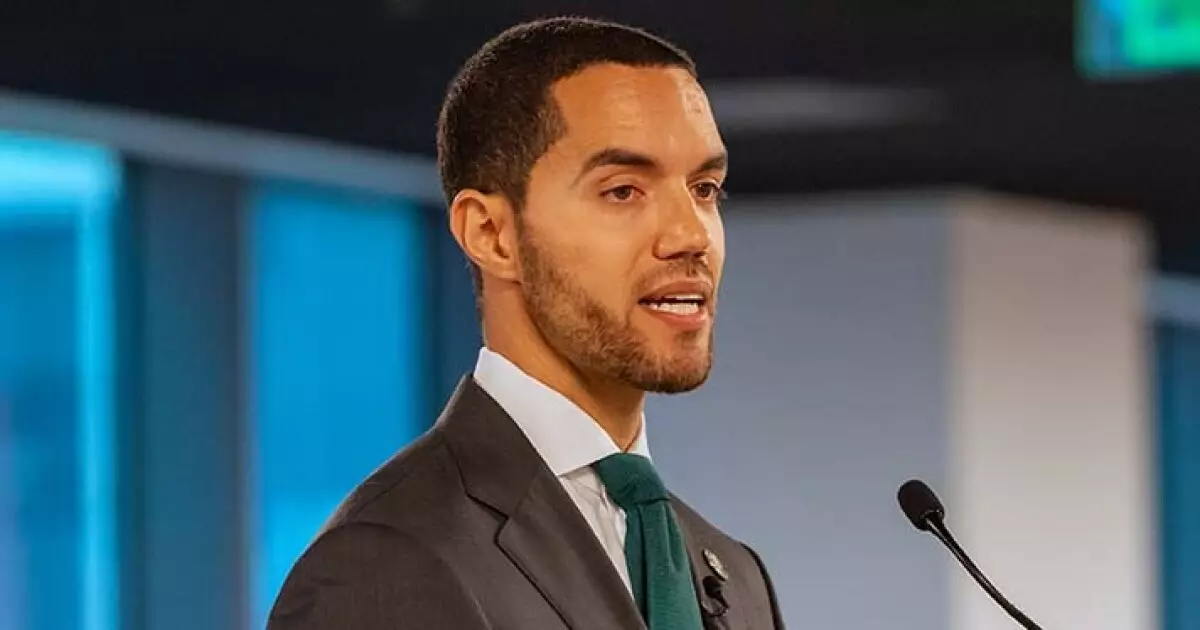Houston’s municipal landscape has become the stage for a contentious dispute between Mayor John Whitmire and City Controller Chris Hollins regarding the ethics surrounding an upcoming investor conference. The allegations of ‘pay-to-play’ practices have ignited discussions about financial transparency, governmental ethics, and the potential repercussions for city leadership. Whitmire’s recent calls for an investigation into these sponsorships have brought significant attention to how fiscal matters are handled in the city.
Mayor Whitmire’s concerns stem from inquiries made by bond underwriting firms regarding sponsorship opportunities for the upcoming investor conference scheduled for Tuesday. Whitmire reported that these firms were solicited for sponsorships ranging from $10,000 to $100,000, each accompanied by a promised array of benefits including networking opportunities and enhanced visibility. This level of financial solicitation raises red flags regarding potential ethical implications, suggesting a system that could favor financial contributors in municipal dealings. Whitmire’s assertion that this initiative damages the reputation of Houston, combined with his claim that such corporate sponsorships have never been part of past conferences, leads to a pressing need for an investigation to assure the public’s confidence in city management.
The mayor’s statement about the correlation between financial contributions and the selection of underwriters adds weight to his concerns. In this environment of uncertainty, bond firms currently doing business with the city, as well as those aspiring to secure contracts, have expressed alarm over potential violations of SEC regulations. This illustrates how the perceived integrity of municipal finance operations can quickly erode, leading to broader implications for Houston’s standing in the eyes of financial analysts and stakeholders.
Chris Hollins has categorically dismissed Mayor Whitmire’s allegations as “baseless,” asserting that he is not involved in the decision-making process regarding the allocation of funds for sponsorships. His emphasis on the legislative architecture of bond contracts, where only the mayor and city council are empowered to award such contracts, positions him as a key player striving to ensure compliance with procedural norms. Hollins characterizes the mayor’s outcry as a distraction from what he considers to be greater issues surrounding fiscal responsibility, namely the city’s structural budget deficit and mounting debt burdens.
During his response, Hollins pointed to broader concerns surrounding fiscal management, echoing worries from city employees and national rating agencies. The recent downgrades by S&P Global Ratings and Fitch Ratings reflect a troubling trend that could complicate future financing efforts for the city. As Hollins articulates the financial stakes of this debate, it becomes apparent that this standoff is not merely about the conference sponsorships, but rather indicative of deeper fissures within Houston’s leadership concerning financial stewardship.
As this confrontation unfolds, the forthcoming investor conference remains a focal point of interest. Despite the absence of the mayor and his staff, Hollins has confirmed that the event will proceed as planned, featuring a host of speakers from various departments and neighboring regions. This resilience in continuing with the conference underlines the contentious atmosphere, as it juxtaposes the mayor’s call for an investigation with the controller’s determination to maintain the status quo.
The ongoing tensions raise questions regarding the ability of city stakeholders to engage in productive discussions when foundational trust has been shaken. The conference, a significant opportunity for networking and information exchange, is now clouded with accusations that risk overshadowing any potential benefits. As stakeholders gather, the need for transparent dialogue becomes paramount to restoring confidence in the management of municipal finance.
In light of these events, it is evident that Houston’s municipal finance practices require scrutiny and potential reforms to regain public trust. The calls for investigations into ethical practices highlight the critical need for clear guidelines governing the relationship between city finances and corporate contributions. Moreover, establishing stringent policies may prevent future ambiguities that could foster mistrust among citizens and potential investors.
As both Whitmire and Hollins navigate their nascent political careers and seek to rectify Houston’s fiscal challenges, the resolution of this conflict will be pivotal. The implications of these allegations extend beyond the investor conference; they underscore the broader narrative of accountability in government and financial ethics in local politics. Moving forward, Houston’s leadership must prioritize transparency to ensure sustainable financial practices that serve the city and its residents effectively.

